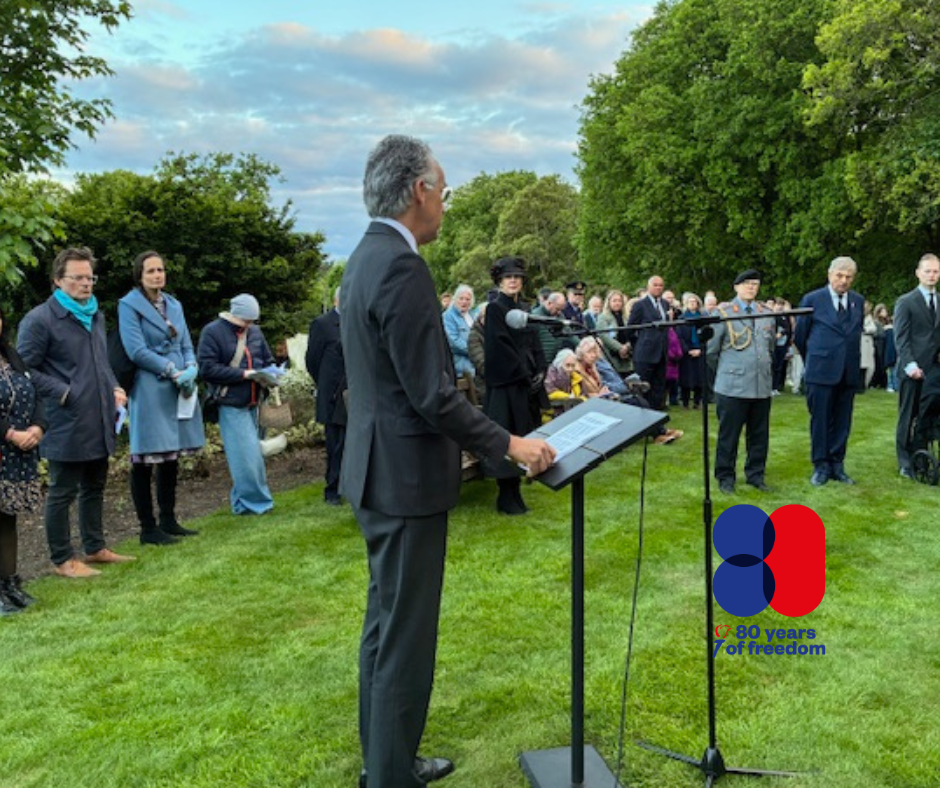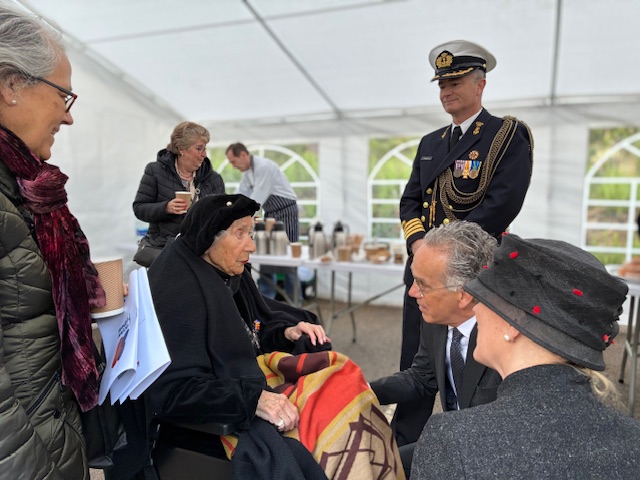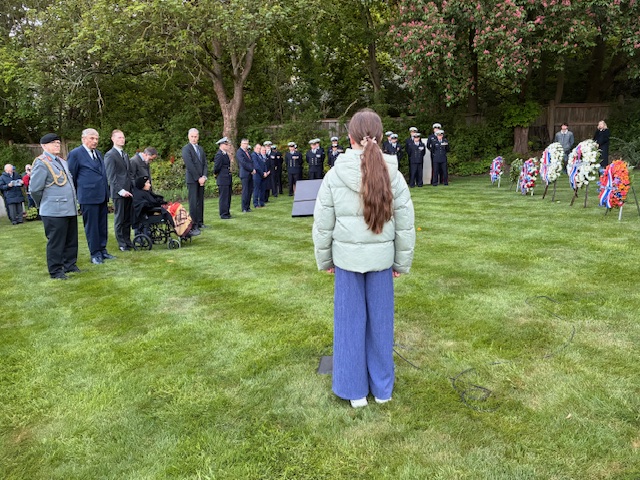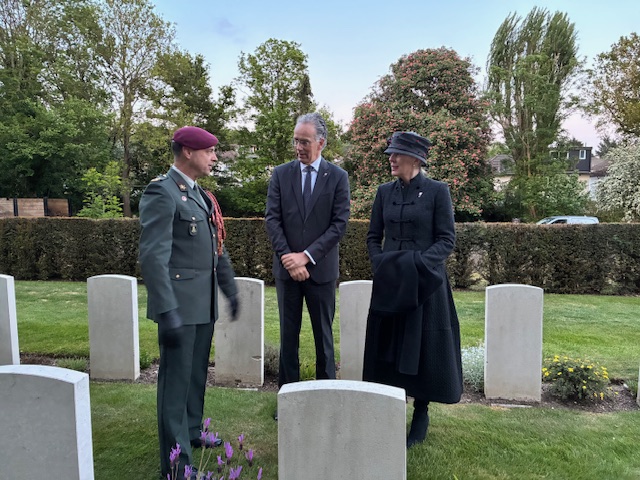Commemorating 80 Years of Freedom: The Dutch National Remembrance Ceremony at Mill Hill - United Kingdom
Commemorating 80 Years of Freedom: The Dutch National Remembrance Ceremony at Mill Hill
On Sunday 4 May, the Embassy of the Kingdom of the Netherlands hosted its annual Dutch National Remembrance Ceremony (‘Nationale Herdenking’) at the Netherlands Field of Honour at Mill Hill Cemetery in London. This year’s ceremony was especially significant as the Netherlands marks 80 years of freedom since the end of the World War Two.
The event brought together Dutch, British and German dignitaries, military representatives, schoolchildren, and members of the public to commemorate the lives of all, civilians and soldiers, who have died in conflicts or peacekeeping operations since the outbreak of the World War Two.
A Moment of Reflection and Unity
As the sun began to set, attendees initially gathered near the chapel for coffee, tea, and a moment of reflection. Many signed the remembrance book before walking in solemn procession to the Netherlands Field of Honour, where they were invited to lay tulips at the individual graves as symbolic gestures of personal remembrance.
The commemoration was led by master of ceremonies Lieutenant-colonel Stefan Klabbers. At precisely 19.50 pm, the official ceremony commenced. Following the sounding of the ‘Taptoe’ and the observance of two minutes of silence at 20:00, the Dutch national anthem, ‘Het Wilhelmus’, was played.
Wreaths Were Laid by:
- Ambassador Paul Huijts, on behalf of the Kingdom of the Netherlands
- Mrs Selma van de Perre, Dutch resistance fighter and Ravensbrück survivor, together with her son and Diederick van der Lee, on behalf of the Engelandvaarders and the Dutch resistance
- Captain(N) Rick Ongering, the Netherlands’ military representative in the UK
- Mr Jan Krekel, representing Vereniging Neerlandia
- Reverend Bertjan van de Lagemaat, representing the Dutch Church
- Brigadier General Torsten Gersdorf, representing the German Embassy
- Mr Andy Murray, Commonwealth War Graves Commission
- Mr Dick van den Broek, The Anglo-Netherlands Society
Ambassador Huijts’ Speech: A Call to Safeguard Freedom
Ambassador Huijts reflected on the enduring impact of war and the privilege, and responsibility of living in peace. He emphasized that the Netherlands remembers not only the 254 Dutch buried at Mill Hill, but also the 185 buried elsewhere in the UK. Many of these individuals were ‘Engelandvaarders’, soldiers, or civilians who made the ultimate sacrifice in the fight against oppression.
This year’s commemoration was made more poignant by the presence of Ms Selma van de Perre-Velleman, now 102 years old. A resistance fighter during World War II, Ms. Van de Perre-Velleman survived the Ravensbrück concentration camp. Her story, captured in her memoir ‘My Name is Selma’, remains a powerful reminder of resilience and the lasting scars of war. Ambassador Huijts thanked her for continuing to share her testimony, inspiring younger generations to cherish and protect the values of freedom and democracy
A Voice from the Next Generation
A central moment in the ceremony came from the voices of the future. Pupils from De Regenboogschool, the Dutch primary school in London, recited original poems that reflected on loss, memory, and the importance of remembrance. The students, Yael en Issabelle gave the audience a moving glimpse into how children today are interpreting and carrying forward the meaning of remembrance.
Contemporary Relevance: freedom cannot be taken for granted
Ambassador Huijts reminded those present that freedom cannot be taken for granted. With the war in Ukraine now entering its third year, the Netherlands continues to stand in solidarity with the Ukrainian people, militarily, diplomatically, and humanely. He also noted that in seven weeks’ time, the Netherlands will host the NATO Summit in The Hague, reaffirming its commitment to collective security and the protection of fundamental rights.
Referencing Holocaust survivor Viktor Frankl, the Ambassador urged reflection: “Between stimulus and response there is a space. In that space lies our freedom.” It is in that space, Huijts said, that we choose how to remember, how to learn from the past, and how to protect freedom for the future.
Reverend Bertjan van de Lagemaat reflected that 80 years after the Netherlands was liberated, conflict and oppression continue in many parts of the world, including the Middle East and Congo, a sobering reminder of the ongoing relevance of remembrance.
Honouring the Fallen, Together
The ceremony concluded with a procession around the monument, led by the Ambassador. Attendees laid additional flowers and took time to reflect at the individual graves. In the quiet of the cemetery, one could feel the weight of history, and the collective resolve to never forget.
As Europe faces growing uncertainty, gatherings like this one in London remind us of the deep ties between the Netherlands and the United Kingdom. They also reaffirm a shared commitment to peace, remembrance, and the safeguarding of freedom for generations to come.




